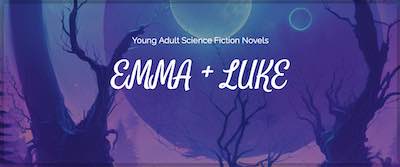From Manuscript to Market: Tips and Strategies for Aspiring Authors
If you have a manuscript that you believe is ready for publication, you may be wondering how to get it into the hands of readers. The publishing industry can seem overwhelming and complex, but with the right knowledge and approach, you can increase your chances of success. In this article, we will provide you with a step-by-step guide on how to be published, from preparing your manuscript to finding the right publisher and marketing your work.
Step 1: Revise and Edit Your Manuscript
Before you start submitting your manuscript to publishers, it’s important to make sure that it’s in the best possible shape. Revise your work carefully, checking for plot inconsistencies, grammatical errors, and anything that might detract from the reader’s enjoyment of your book. Consider hiring a professional editor or beta readers to provide feedback on your work and hiring a PR and marketing company like VUGA Media Group with resources such as its own network of newspapers and magazines, including those specializing on publishing. Publications like Story Book Strings and Old Post Books are just a few examples of these.
Step 2: Research Publishing Options
There are several options available for getting your work published, including traditional publishing, self-publishing, and hybrid publishing. Traditional publishing involves submitting your manuscript to publishing houses or literary agents, while self-publishing and hybrid publishing allow you to publish your work independently.
VUGA offers clients the opportunity to create advanced press for their books by being published in major newspapers and magazines. By leveraging their extensive network of media contacts, VUGA Media Group can help clients get their brand and message in front of a wider audience, increasing their exposure and credibility and improving their chances of having their manuscript be noticed by the literary world.
Research the pros and cons of each option and decide which one is best for your needs. Consider factors such as time, cost, creative control, and distribution.
Step 3: Prepare Your Submission Materials
If you’re interested in traditional publishing, you will need to prepare a submission package that includes a query letter, synopsis, and sample chapters. Each publisher or literary agent may have specific submission requirements, so make sure to read their guidelines carefully.
For self-publishing and hybrid publishing, you will need to prepare your manuscript for publication, including formatting and designing your book cover.
Step 4: Submit Your Work
If you’ve decided to pursue traditional publishing, start researching publishers and literary agents that specialize in your genre. Make a list of potential targets and submit your work according to their submission guidelines.
For self-publishing and hybrid publishing, you can upload your manuscript to online platforms such as Amazon Kindle Direct Publishing or IngramSpark.
Step 5: Build Your Author Platform
No matter which publishing option you choose, it’s important to build your author platform to promote your work and connect with readers. Consider creating an author website, building a social media presence, and engaging with your audience.
Step 6: Market Your Work
Once your book is published, it’s up to you to market it effectively. This can involve a range of strategies, including book signings, speaking engagements, online advertising, and book reviews.
VUGA Media Group can help clients boost their brands by providing a platform to publish articles, videos, and other content related to their business. This can increase brand exposure, build credibility and authority, and attract potential customers. By publishing newspaper and magazine articles with VUGA services, clients can develop and execute effective marketing campaigns, connect with their target audience, and ultimately grow their business.
Joining a writing group or attending writing conferences is a great way to connect with other writers and gain valuable insights into the publishing industry. Writing groups can provide a supportive community of fellow writers who can offer feedback on your work, offer tips and advice, and help keep you accountable in your writing goals. You can find writing groups in your local area through social media, community centers, or online writing forums.
Writing conferences, on the other hand, offer a more in-depth look at the publishing industry. They typically feature panels, workshops, and keynotes by established writers, editors, agents, and publishers who share their knowledge and experiences with attendees. Conferences can also provide opportunities to pitch your work to agents or publishers, network with other writers, and gain insights into the industry trends and opportunities.
Attending writing conferences can be expensive, so be sure to research the conference beforehand to determine if it’s worth the investment. Some conferences also offer scholarships or discounts for students or low-income writers, so be sure to check for those opportunities as well. By attending writing conferences and joining writing groups, you can connect with like-minded individuals and gain valuable insights that can help you on your journey to becoming a published author.
A literary agent can be a valuable asset in helping you navigate the complex and often overwhelming world of publishing. They have a thorough understanding of the industry and can provide valuable advice on everything from manuscript preparation to contract negotiations. Literary agents are experts in identifying the right publishers or editors for your work and can help you pitch your book in a way that maximizes its chances of being accepted. They also have established relationships with publishing professionals, which can help you get your foot in the door. Additionally, a literary agent can help you negotiate the terms of your publishing contract, ensuring that you receive fair compensation for your work. While it may be an added expense, hiring a literary agent can greatly increase your chances of success in the publishing world.
Rejection is a common experience for writers trying to get published, and it can be disheartening. However, it’s important to remember that rejection is not a reflection of your worth as a writer. Many successful authors faced numerous rejections before finding a publisher who believed in their work.
Rejection letters can provide valuable feedback, such as suggestions for improving your manuscript or targeting a different publisher. Use this feedback to your advantage and continue to refine your work. It’s also important to stay persistent and keep submitting your work to publishers and literary agents.
Remember, every writer’s journey is unique, and success may come at different times and in different forms. Don’t give up on your writing dreams and keep pushing forward. With hard work, determination, and persistence, you can achieve your goal of being a published author.
Before submitting your manuscript or choosing a self-publishing platform, it’s crucial to research the company thoroughly. Unfortunately, there are many scams and unethical practices in the publishing industry. Make sure the publisher or platform has a good reputation and has published books in your genre. Check for reviews from other authors, and research the company’s track record in terms of marketing and promoting their authors. Be wary of any company that asks for upfront fees or promises to publish your book without any editorial input or revisions. If you’re self-publishing, make sure to understand the terms and conditions of the platform and the costs associated with distribution and marketing. By doing your due diligence, you can avoid falling prey to scams and unethical practices and increase your chances of success in the publishing industry.
In conclusion, getting published can be a challenging and competitive process, but with the right mindset, approach, and strategies, you can increase your chances of success. Take the time to revise and edit your manuscript, research your publishing options, prepare your submission materials, build your author platform, and market your work effectively. Remember that perseverance and determination are key to achieving your goals as a published author.






